Praise for The Mindfulness Code
The Mindfulness Code is like having your own personal mindfulness coach. Altmans joy, passion, and knowledge are evident in each of the books clearly written experiential teachings. This book cannot help but bring more joy, happiness, and contentment to the lives of everyone who reads it. It is a much-needed elixir for these turbulent times.
Randall Fitzgerald, author of The Hundred-Year Lie and former roving editor for Readers Digest
Donald Altmans latest book is a feast of kindness, wisdom, humor, and insight. Each chapter offers practical and inspiring ways to cultivate inner peace amid everyday life. Its a beautifully written book that readers will want to savor as well as share with others. Once you start cracking The Mindfulness Code, you wont want to stop.
Ronna Kabatznick, PhD, assistant clinical professor at
Langley Porter Psychiatric Institute,
University of California, San Francisco
For those looking for more meaning from work or at work, The Mindfulness Code opens the door to discovering how you can derive more satisfaction from what you do. Happiness, as Altman explains, can come from what you do for yourself as well as for others. The four keys to The Mindfulness Code are enlightening but also practical, especially when coupled with the more than forty strategies presented in this easy-to-read text. The Mindfulness Code is a book that you will find yourself reaching for again and again as you explore meaning in your own lifes work.
John Baldoni, author of Lead Your Boss and Lead By Example
There are books about mindfulness as a technique for solving this or that problem. And then there are books that unpack the bigger-picture treasures of mindfulness as a worldview. The MindfulnessCode is an open-source secret of mindful living, a compassionate invitation to infuse mindfulness into every aspect of ones life. In offering a set of four keys for overcoming suffering, Altman remains an ever-skillful locksmith, narrating an innovative existential map with the help of teachings, inspirations, clinical vignettes, personal revelations, and ready-to-use techniques.
Pavel Somov, PhD, author of
Present Perfect: Letting Go of Perfectionism and the Need to Control
The Mindfulness Code richly integrates ancient body-mind-spirit knowledge with cutting-edge brain science. The book is filled with evidence-based research practices designed to relieve suffering caused by anxiety, depression, and life difficulties. Individuals and therapists alike will benefit from these simple, realistic, and achievable tools that are necessary for rebuilding ones life with hope, resilience, and gratitude.
Greg Crosby, MA, LPC, CGP, trainer, psychotherapist,
and faculty member at Portland State University
and Marylhurst University
The Mindfulness Code is a wonderful mix of warmth, humor, and gentle wisdom. Donald Altman weaves an engrossing blend of insights and personal stories from his many years as a skilled therapist along with illustrative research findings and many helpful mindfulness exercises. This book will hand you the keys for unlocking a life of greater ease and happiness.
Zen Roshi Jan Chozen Bays, MD,
author of Mindful Eating and A Year of Mindful Living
THE MINDFULNESS CODE
Also by Donald Altman
Art of the Inner Meal
Living Kindness
Meal by Meal
THE MINDFULNESS CODE
Keys for Overcoming Stress,
Anxiety, Fear, and Unhappiness
DONALD ALTMAN
New World Library
Novato, California

Copyright 2010 by Donald Altman
All rights reserved. This book may not be reproduced in whole or in part, stored in a retrieval system, or transmitted in any form or by any means electronic, mechanical, or other without written permission from the publisher, except by a reviewer, who may quote brief passages in a review.
The material in this book is intended for educational purposes only. It is not intended as a replacement for advice from a mental health or medical practitioner. No expressed or implied guarantee as to the effects of the use of the recommendations can be given nor liability taken. The authors experiences used as examples throughout this book are true, although identifying details such as names and other descriptive elements have been changed to protect the privacy of others.
For permission acknowledgments, see pages 163 and 207.
Text design by Tona Pearce Myers
Library of Congress Cataloging-in-Publication Data
Altman, Don, date.
The mindfulness code : keys for overcoming stress, anxiety, fear, and unhap
piness / Donald Altman.
p. cm.
Includes bibliographical references and index.
ISBN 978-1-57731-893-4 (pbk.: alk. paper)
1. Stress (Psychology) 2. Stress management. 3. Mind and body. I. Title.
BF575.S75A482010
First printing, June 2010
ISBN 978-1-57731-893-4
Printed in Canada on 100% postconsumer-waste recycled paper
 New World Library is a proud member of the Green Press Initiative.
New World Library is a proud member of the Green Press Initiative.
10 9 8 7 6 5 4 3 2 1
This book is dedicated to peace
and all who seek peace,
within and without.

May each grain of mindfulness
be a blessing of awakening
on behalf of all who suffer.
May each grain of mindfulness
be an instrument of peace and love
for the benefit and well-being of all.
Contents
H AVE YOU EVER DREAMED OF LIVING IN AN AGE or a place that offers the promise of a simpler life? A place where friendship and kindness flourish? Where peace and silence are close at hand? Where innumerable joys are waiting to be found? Believe it or not, you neednt search for the legendary kingdom of Shambhala to find such peace and tranquility. It is very real, and it exists in the midst of our complex twenty-first-century life, in a nearby land known as the here and now. But the land of here and now with its treasures of deep peace, joy, and awareness is often hidden from view and hard to find. Mindfulness is the master key that opens the door to these inner riches, and you need only unlock your natural birthright of mindful awareness to gain entry.
There has probably never been another period in the history of humankind as frenetic, hectic, fast, and chaotic as our own. As much as we collectively embrace and marvel at the speed, connections, and benefits of technology, we need also to acknowledge the effects of its complexity and costs most significantly, perpetually high levels of stress. Chronic stress has been implicated in a majority of illnesses. In the United States, at least 50 percent of all medications are for conditions related to chronic stress. Worldwide levels of depression, anxiety, and addiction have reached unprecedented heights; one in four persons on the planet are estimated to be clinically depressed. These are just a few of the signposts (more like Vegas-style flashing neon billboards) telling us that we as a species are out of balance.

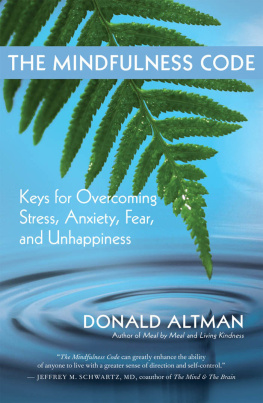
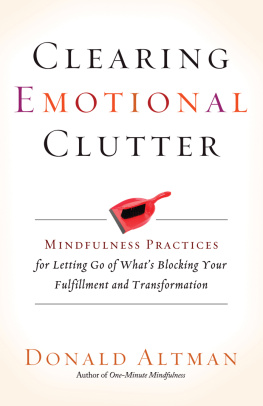
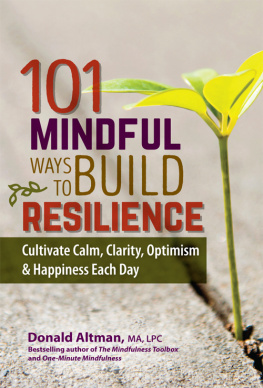
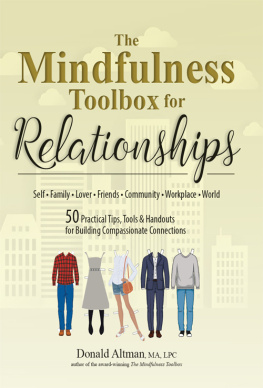
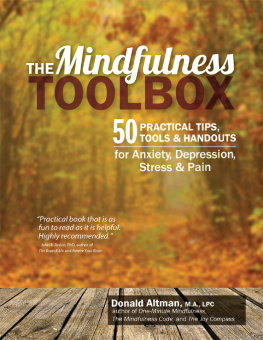
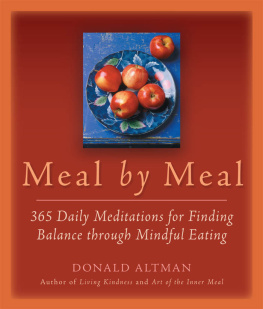
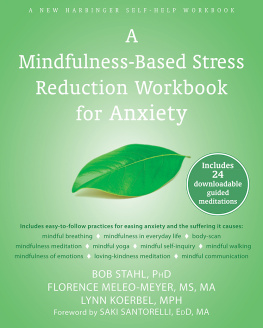


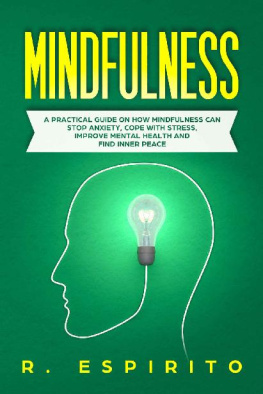
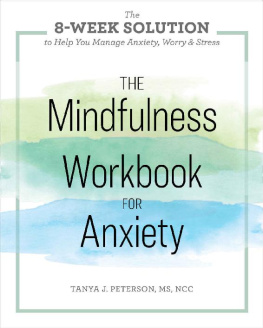
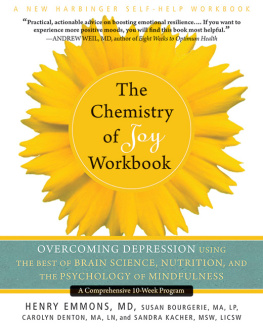
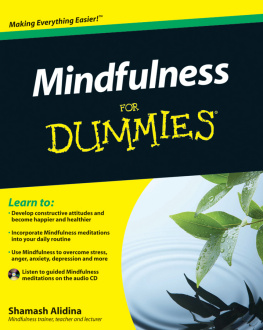


 New World Library is a proud member of the Green Press Initiative.
New World Library is a proud member of the Green Press Initiative.